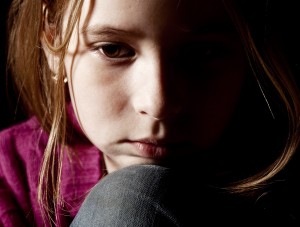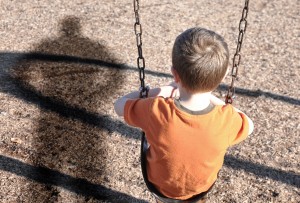Child Abuse
Child Abuse & Neglect
To report child abuse or neglect, call the Massachusetts Child-at-Risk Hotline anytime of the day or night at 800-792-5200.
If you have been contacted by the Massachusetts Department of Children and Family Services (DCF), it is very important that you immediately learn your rights and obligations so that you can best protect yourself and your children.
With more than 20 years of family law experience, Attorney Rhonda Boulé will educate you about the process and fight to protect your rights and the best interests of your children. Call us for help now. 617/969-0400.
Information about the DCF and frequently asked questions (FAQs)
What is the DCF?
The Department of Children and Families (DCF), formerly known as the Department of Social Services (DSS), is the Massachusetts state agency responsible for protecting children from child abuse and neglect. Under Massachusetts Law, the DCF receives all reports of suspected abuse and neglect of children, and becomes involved as appropriate in order to protect children. The DCF is able to provide services to support and strengthen families with children at risk for abuse or neglect, such as family advocates and nurturing programs.
When will the DCF become involved with a family?
When the DCF learns or reasonably believes that children are being abused or neglected by the people responsible for caring for them, the DCF will intervene to ensure the safety of the children. The DCF has to take into consideration the family’s right to be free from unwarranted government interference, and must balance that right with its obligation to keep children safe, only becoming involved when it’s necessary to the health, safety and well-being of children.
How Does the DCF know when a child is being abused or neglected?
Massachusetts law requires certain professionals who work involves children (for instance, school teachers and pediatricians) to notify the DCF if they suspect that a child is being abused or neglected. These professionals are known as Mandated Reporters. The DCF depends on reports from Mandated Reporters and concerned individuals to learn about children who may need protection. In addition, the DCF may get referrals from the Probate or Juvenile Courts.
What is a Mandated Reporter?
A “Mandated reporter” is a person whose job puts him or her in contact with children, and includes:
- a physician, nurse, psychologist, emergency medical technician, dentist, chiropractor, podiatrist, optometrist, osteopath, mental health professional, drug and alcoholism counselor, psychiatrist, clinical social worker, or medical examiner;
- a public or private school teacher, school administrator, school attendance officer, guidance or family counselor;
- a child care worker, person paid to care for or work with a child in any public or private facility, or home or program funded by the commonwealth that provides child care or child care resource and referral agencies;
- a probation officer, clerk-magistrate of a district court, parole officer, social worker, foster parent, firefighter, police officer;
- a priest, rabbi, clergy member, ordained or licensed minister, leader of any church or religious body, or person employed by a church or religious body to supervise, educate, coach, train or counsel a child on a regular basis; or
- a person in charge of a medical or other public or private institution, school or facility or that person’s designated agent.
What is a “51A report”?
A report made to the DCF of abuse or neglect, by either a mandated reporter or another individual, is called a “51A report.” When the DCF receives such a report, it is required to investigate the allegations and determine the safety of the child.
If someone reports me, do I have to talk to DCF? Can my lawyer be there?
You do not have to talk to the DCF, but you should speak with an attorney before you refuse to cooperate. The DCF may ask the court or the police for help accessing your child, even if you object. If you do speak with the DCF, keep in mind that whatever you tell the DCF may be used against you. You may therefore want to have your lawyer present during any such interview, and should certainly speak with your lawyer first.
Can I find out who reported me to the DCF?
The DCF cannot disclose the identity of the reporter, and the reporter may have made the report anonymously. The DCF, however, must give you specific details of the allegations. In some cases, you may be able to guess the identity of the reporter. Be sure to tell the DCF investigator if you have reason to believe the allegations may have been made for some ulterior purpose, such as spite.
Can I see the 51A report made against me?
You may request a copy of the 51A report in a letter addressed to the Regional Director of the DCF. Refer to the Notice you received for the name and address, or contact your local DCF office.
Can the DCF take my children away after they receive a 51A report?
Yes, in certain circumstances. If at or after any stage of the intake, screening, or investigation the DCF believes that your children are in danger of serious abuse and neglect such that an emergency response is warranted, or the DCF can seek temporary custody.
What happens if DCF takes my children away?
If the DCF obtains temporary custody of your children, you are entitled to an emergency hearing, at which you have the right to tell your side of the story. You should have an attorney represent you in order to fight for custody.
What is a Care and Protection Case?
A Care and Protection action is a case filed in Juvenile Court, usually by the DCF after receipt of a 51A report, in which the Judge decides whether the child is, or was, at risk of serious abuse or neglect if the child remains in his home. The Judge will evaluate whether the parent is unfit, and determines who should be awarded custody, based upon the best interests of the child.
Does the DCF prefer to keep families together or to remove children?
The DCF reports that its policy is to strengthen and encourage family life, with each family taking care of and protecting its own children. The DCF helps families use all available resources to keep the family unit intact. It is only when a family cannot or does not provide the necessary amount of care and protection of its children that the DCF will intervene. Such intervention is intended to protect the right of children to be emotionally and physically healthy.
What happens once the DCF receives a 51A report?
The Child Protective Services process includes the following steps:
1. The report is screened, immediately upon receipt by the DCF, for the purpose of compiling sufficient information to determine:
- whether the allegations meet the criteria of the DCF for suspected abuse or neglect;
- whether the child’s safety is in immediate danger; and
- whether DCF involvement is warranted, and how to best respond.
During this screening and information gathering process, the DCF will obtain information from the reporter, as well as from professionals involved with the family, such as doctors and teachers, and possibly from the family. In the case of an emergency, the screening is completed within two hours. For a non-emergency, the screening can take up to three business days.
2. The report is then either “screened-in” or “screened out.”
- If the DCF determines that the allegations in the 51A report are not substantiated, then the report is screened out, and the DCF will generally notify in writing any sources or recipients of information in connection with the investigation that the report of abuse or neglect has not been substantiated.
- If the DCF determines that the allegations are substantiated, the 51A report is screened in, and it is assigned for either (a) a Child Protective Services (CPS) Investigation (in the case of allegations of serious abuse or neglect); or (b) a CPS Assessment Response (in the case of allegations of more moderate or lower risk abuse or neglect).
- An emergency investigation must begin within two hours and be completed within five business days.
- A non-emergency investigation must begin within two business days and be completed within fifteen business days.
- An initial assessment must begin within two business days and be completed within fifteen business days.
- A comprehensive assessment may take up to forth-five business days.
What does it mean if the DCF notifies me that the 51A report was “supported”?
A supported 51A report means that the DCF has concluded that there is evidence to suggest that the allegations of abuse or neglect are true.
What happens if the DCF remains involved in my case after determining that the 51A report was supported?
The DCF will offer appropriate services to the family to prevent further injury to the child, to safeguard his welfare, and to preserve and stabilize family life whenever possible. Services may include daycare, parenting education, and family therapy. You should consult with an attorney before signing any Service Plan, as you will be required to comply with its terms.
Child Abuse and Neglect
Child abuse and neglect are governed by statute, M.G.L. c. 199, entitled “Protection and Care of Children, and Proceedings Against Them.” The statute states that the purpose of the law is “to insure that the children of the commonwealth are protected against the harmful effects resulting from the absence, inability, inadequacy or destructive behavior of parents or parent substitutes, and to assure good substitute parental care in the event of the absence, temporary or permanent inability or unfitness of parents to provide care and protection for their children.”
What is the definition of child abuse?
Abuse is defined by Massachusetts law (110 CMR, section 2.00) as the non-accidental commission of any act by a caretaker upon a child under age 18 which causes, or creates a substantial risk of, physical or emotional injury; or constitutes a sexual offense under the laws of the Commonwealth; or any sexual contact between a caretaker and a child under the care of that individual.
How can you tell if a child is being abused?
Although each case is individual, child abuse often presents warning signs, which according to the Massachusetts Department of Health and Human Services may include:
- Bruising, welts or burns that cannot be sufficiently explained (for example, cigarette burns); particularly bruises on the face, lips, and mouth of infants or on several surface planes at the same time;
- Withdrawn, fearful or extreme behavior;
- Clusters of bruises, welts or burns, indicating repeated contact with a hand or instrument;
- Injuries on children where children don’t usually get injured (e.g., the torso, back neck buttocks, or thighs).
What is the definition of neglect?
Neglect is defined by Massachusetts law (110 CMR, section 2.00) as the failure by a caretaker, either deliberately or through negligence or inability to take those actions necessary to provide a child with minimally adequate food, clothing, shelter, medical care, supervision, emotional stability and growth, or other essential care; provided, however, that such inability is not due solely to inadequate economic resources or solely to the existence of a handicapping condition.
How can you tell if a child is being neglected?
According to the Massachusetts Department of Health and Human Services, signs of neglect include:
- Lack of medical or dental care;
- Chronically dirty or unbathed;
- Lack of adequate school attendance;
- Lack of supervision; for example young children left unattended or with other children too young to protect or care for them;
- Lack of proper nutrition;
- Lack of adequate shelter;
- Self-destructive feelings or behavior; and
- Alcohol or drug abuse.
What is the definition of a “child” for purposes of the DCF?
A “child” is a person under the age of 18.
What do I do if I believe a child is being abused or neglected?
If you believe a child is being abused or neglected, you should immediately call the Massachusetts Child-At-Risk Hotline at 1-800-792-5200, including after hours and on weekends and holidays. Mandated reporters are required to file a report within 48 hours. (Mandated reporters should refer to information online at http://www.mass.gov/eohhs/gov/departments/dcf/child-abuse-neglect/reporting-abuse.html)
Will I get in trouble if I report abuse or neglect, and it turns out I was wrong?
No, as long as you reasonably believe that a child is suffering from or has died as a result of abuse or neglect. If you make a report in good faith, which is not frivolous, and you did not cause the abuse or neglect, you will not be liable in any civil or criminal action for filing a report.
If I report abuse or neglect, will the parents of the child be able to find out who made the report?
Not from the DCF. The DCF is not allowed to disclose the reporter’s identity. A person may even make the report anonymously. The parents may, however, be able to figure out the identity of the reporter from circumstances.
To report child abuse or neglect, call the Massachusetts Child-at-Risk Hotline anytime of the day or night at 800-792-5200.
If you need help, call or send an email to Attorney Rhonda Boulé at 617/969-0400/[email protected] or use the contact form to the right.
Family Law Practice Areas
- Restraining Orders – Abuse-Prevention Orders (G.L. Ch. 209A)
- Alimony
- Child Abuse
- Child Support
- Contempt
- Contribution of Parents to College Expenses
- Custody
- Divorce
- Modification of Existing Judgments or Orders
- Paternity and Children Born Out-Of-Wedlock
- Prenuptial Agreements
- Separation Agreements
- Visitation and Parenting Plans



